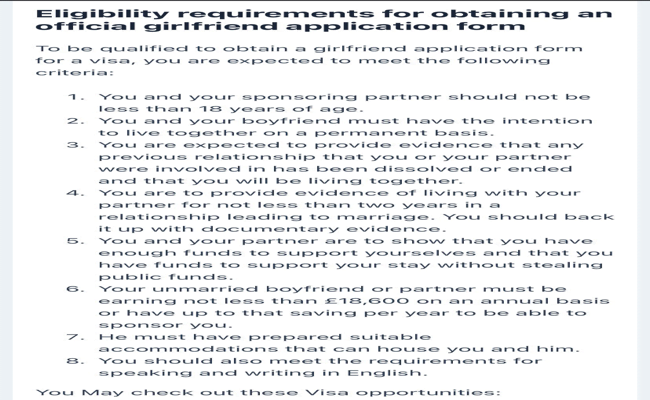Does detention go on your record?

Does detention go on your record? Detentions for undesirable behaviors in school are not the same as suspensions, as they can be served either before or after school. If your child is under detention and you are wondering if this will ruin her reputation by gaining entrance into her records, or you have gotten into trouble at school and you heard people say your action will get into your permanent record, making a long-term negative impact on your future, but you are unsure if it is, find out here!
What are college detentions?
Detentions come as a means of punishment given to a student where the student is sent to stay in an “undesirable” place outside of the usual classroom location and hours. Detentions are products of disruptive behaviors in class. Some detentions take place during the lunch period; some schools even specify that such students under punishment complete their schoolwork during the stage of detention; and some other schools may not really care about your activities as long as you stay silent in a designated location.
Check First day of school peer interview
Does detention go on your record?
Detention as a form of disciplinary measure is recorded on your file to track your behavioral history. Although some colleges are not interested in keeping your records, they only subject you to detention to let you learn from your mistakes. This category of colleges is after your transcript and general performance at the college, and the contents are your GPA, class rank, and test scores.
Detentions do go on records, and colleges usually request your disciplinary history through other means. Here are some instances:
- They may go straight by asking you if you have been involved in any serious offense in the past and if you have been convicted of any criminal act.
- They may also seek an external evaluation where your guidance counselor is asked to give detailed information about your behavioral trends and disciplinary records.
What happens if you get detention? do detentions go on your record?
When you get detention, you are exempted from the usual cycle of going home after school. You will be sent to a classroom or any reserved space, and there you will be asked to sit down at a desk for some period of time, usually ranging from ten minutes to up to two hours or even more. It depends on how your college does detention, but usually most college detention time is 1 hour or less.
What are the disadvantages of detention?
Even though detention is served as a means of disciplinary action for your disobedience at school, it may not really be the best way to stop disruptive behaviors. I completely agree with this. Here are some live disadvantages of detention that I suggest that every school take note of:
- There are students who became more stubborn after detention. Why? Because they got used to the punishment, they now enjoy being alone and serving their detention punishment.
- When served detention and other forms of suspension or expulsion at school, recidivism becomes the student’s choice, even when the punishment is made harsher or longer.
What should you do when you get your first detention?
I’m not completely against detention, nor am I supporting longer detention times, but if you find yourself in one, all you should do is take this time as an opportunity to change for the better, reflect on what brought you there, and learn how you can avoid being caught up again. Your decision will go a long way in helping you stay out of detention in the future. If you were sent to detention because you were disturbing the class, you should learn to keep quiet from this punishment, and if you were on detention because of lateness, then you have to work on time management, and you will see yourself get off the trap and never again return to detention.
What are the reasons for detention?
There are countless behaviors and acts that can get you into detention. The severity of these reasons is also determined by your college rules, but usually here are the reasons why your child may get into detention: when he or she is always tardy or skips classes, when they practice disruptive behaviors in class, if they don’t complete homework or assignments, any form of violation of school rules and regulations or the code of conduct guiding the college, using bad language or exhibiting bad behavior, and lastly, when they bully or harass other students.
Does plagiarism go on record?
Yes, most colleges are intense when it comes to penalizing students for plagiarism, and when you are applying to a new school, you may be asked if you have been involved in any case of plagiarism or examination malpractice. Plagiarism is a very serious offense, and academic institutions are on the lookout for students who can uphold academic integrity.
Do suspensions go on records?
Yes! When you are suspended from college as a punishment for an offense committed in school or outside of school, so long as it is a crime against the school, your action is taken into the disciplinary record. Suspension is a more severe form of punishment when compared to detention. Detention is only given to let you recover from your senses and possibly become a better person, and colleges consider suspension very seriously because usually the crimes that get you into the suspension record are usually tougher ones compared to detention.
Does ISS go on your record?
On your record, you won’t really get a notice of an in school suspension (ISS). The good thing about ISS is that it is not recorded in the permanent register and the student keeps on coming to school. However, the main disadvantage is that ISS will reduce your teacher’s willingness to write a recommendation for you or stand for you when you need their support.
Find out more about ISS here: Does ISS go on your record?
What is the difference between detention and imprisonment?
In detention, you are kept in a room on a temporary basis for a crime you committed and, in a more broader sense, for criminals who are awaiting sentencing or people yet to be deported. Imprisonment, on the other hand, is a long-term punishment; you’re confined, convicted, and then sentenced to serve a prison sentence.
How many detentions before expelled
When a child can be expelled is not really determined by the number of detentions he have been through, there is a volume of disobedience that warrants immediate expulsion without detentions. However, in cases were the student have been under detentions for more than 3 cases, he or she may also be expelled.
How long is a detention
Detentions can occur from 1 hour to 24 hours maximum. The child is kept aside from other activities and monitored.
Final thoughts on does detention go on your record?
Detentions do go on records, and colleges usually request your disciplinary history through other means. When you get detention, you are exempted from the normal activities of going home after school. You will be sent to a classroom or any reserved space, and there you will be asked to sit down at a desk for some period of time.
Continue Reading
Weiss High School Football: Ranking, Coach





